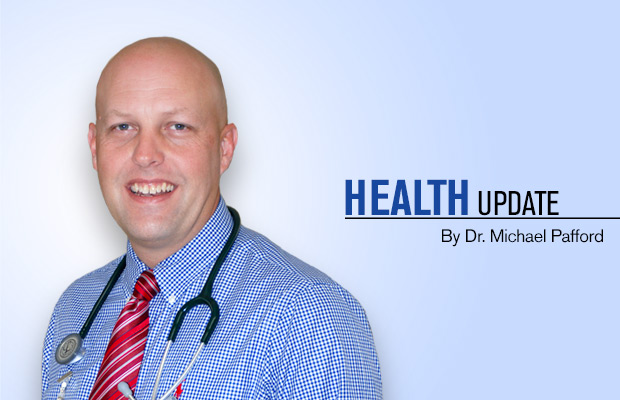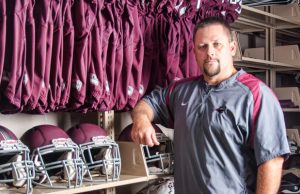Health Update: Coping With Chronic Illness – Pt. 3

Taking Responsibility For Yourself
I have to first admit that my perspective on illness has changed since the last time I wrote these articles. Prior to now, I’ve been the doctor who has watched people be sick and shared knowledge I’ve gained from observing their illness. That all changed for me on March 23rd of this year. Three days after my 44th birthday, I had a stroke.
The day started like any other day except that I had arranged to take the day off from work. I had no place to be. I had not even set my alarm that day. I had no agenda. I had been awake watching SportsCenter and was about to get out of bed to make some coffee when everything changed.
Suddenly I was ferociously dizzy. I was nauseous and flushed. My wife, Michelle, was immediately concerned when she noticed that I was sweating bullets. I told her to relax and that I wasn’t going to the ER—until I tried to get out of bed to vomit and realized I could not walk.
It was as if the floor was not there. I could see the floor and yet I had the terrifying sensation that I was freefalling through empty space—as if there was no floor. Michelle helped me to the bathroom and by that time I had finally figured out what was happening. I knew I needed help.
So I quit being stubborn and I went straight to Saline Memorial Hospital and I got exactly the help I needed. I was treated with a clot-busting medication that aborted my stroke.
Now, it’s obviously not a good thing to have a stroke. However, that doesn’t mean that good cannot come from an event like this. Being on the other side of the coin (the patient side instead of the doctor side) has helped me relate to the emotions and challenges faced by people who have to recover from an illness. Even before my stroke, I believed that personal responsibility played an important part in recovery, and now I’m more certain of that than ever!
When recovering from an illness, you have to understand there are two phases – the acute phase and the chronic phase. Most people think that acute means severe and that is not true. Acute means sudden or immediate. Acute has nothing to do with the severity of an illness. The common cold is an acute illness even though we would not consider it severe.
Conversely, Chronic means long-lasting. So now consider my stroke: The acute phase is the day that the event happened – when one minute I was normal watching SportsCenter and the next minute I couldn’t walk. The chronic phase is the recovery after the event – when the sudden event has been aborted. I now have to relearn my balance so that I can walk normally again.
During the acute phase of the illness, you might not be able to do anything for yourself and you will be reliant on the help of others. However, the further into the recovery phase you get (the more chronic it becomes), the less help you will get and the more you will have to take responsibility for your own recovery. This is the last key for coping with chronic illness – you have to expect more from yourself during the chronic phase of your illness. I have seen patient’s whose recovery has been halted because they expected others to do too much of the recovery for them.
Please keep in mind; I am no longer just some doctor who’s never actually had to hoe your row—trying to tell you how to hoe it! I have woken up in a hospital bed unable to walk to the toilet to urinate. I have had to walk with a cane until I could relearn how to walk straight. I have had to remember to take pills twice a day. I have had to make myself do physical therapy exercises when I’d rather stay in bed. I’m telling you from personal experience, rather than from professional wisdom, there was no one standing over me forcing me to do my physical therapy.
When you are coping with chronic illness, you have to own it. Your doctor can write you a prescription, but he will not put the pill in your mouth. When you hurt and the physical therapist comes to your room and encourages you to get out of bed, you have to say yes. Don’t be mad at them. You are the only one who will suffer if you don’t get moving. If you hurt too bad and you physically cannot do it right then, ask them when they can come back. You must take ownership of your illness and you must set goals for yourself. I promise, if you take this advice and you take ownership of your illness, you will be pleasantly surprised by how much better you can be!
Previously we’ve talked about reserve capacities role in chronic illness and we’ve talked about the importance of living in the moment. Now we’ve completed this series discussing the importance of personal responsibility in recovery. I hope this helps equip you with the tools you need to face any illness.









0 comments